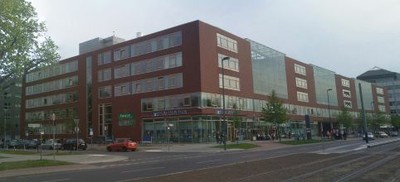absIPDPSW10.txt
For the management of a virtual P2P super-computer one is interested in subgroups of processors that can communicate with each other efficiently. The task of finding these subgroups can be formulated as a graph clustering problem, where clusters are vertex subsets that are densely connected within themselves, but sparsely connected to each other. Due to resource constraints, clustering using global knowledge (i.e., knowing (nearly) the whole input graph) might not be permissible in a P2P scenario, e. g., because collecting the data is not possible or would consume a high amount of resources. That is why we present a distributed heuristic using only limited local knowledge for clustering static and dynamic graphs. Based on disturbed diffusion, our algorithm DIDIC implicitly optimizes cut-related quality measures such as modularity. It thus settles between distributed clustering algorithms for other quality measures (e.g., energy efficiency in the field of ad-hoc-networking) and graph clustering algorithms optimizing cut-related measures with global knowledge. Our experiments with graphs resembling a virtual P2P supercomputer show the promising potential of the new approach: Although each node starts with a random cluster number, may communicate only with its direct neighbors within the graph, and requires only a small amount of additional memory space, the solutions computed by DIDIC converge to clusterings that are comparable in quality to those computed by the established non-distributed graph clustering library mcl, whose main algorithm uses global knowledge.
